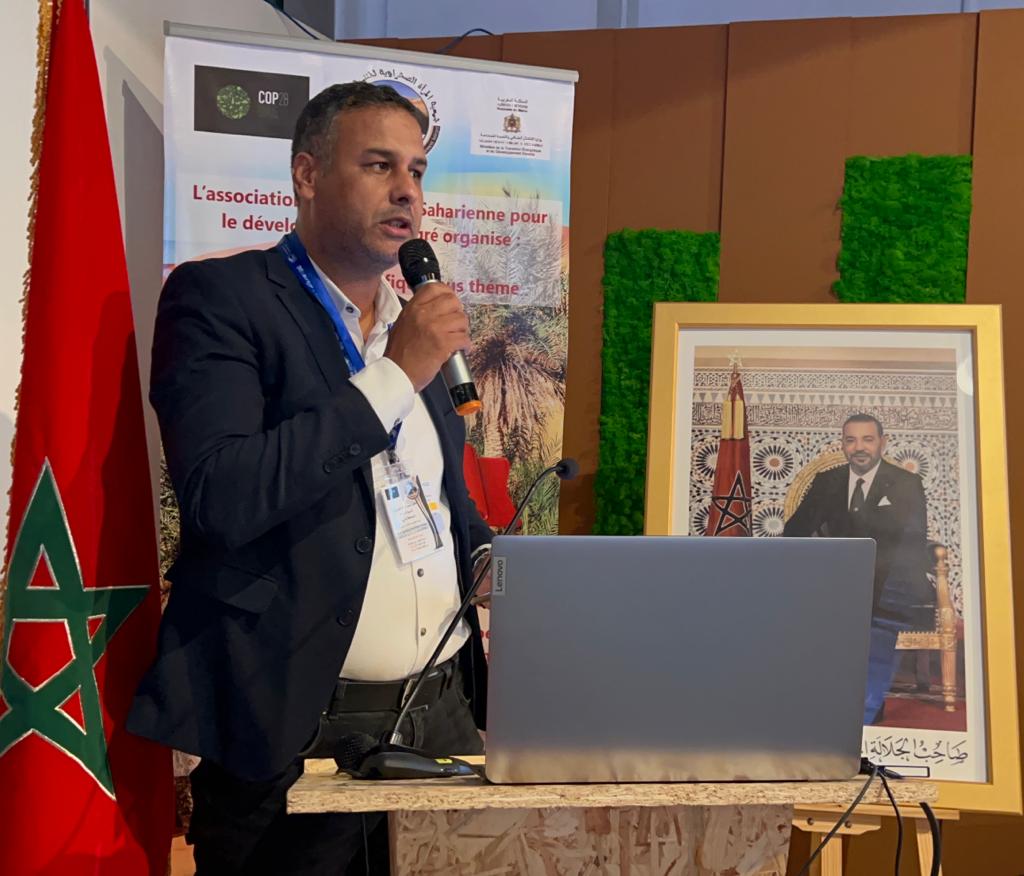Dr. Youssef EL GUAMRI – professor, researcher and civil society activist.
There is no doubt that climate change has a significant impact on all social groups in all countries, especially those that depend more on natural resources for their livelihoods, and that have the least ability to respond to natural hazards, such as droughts, landslides, floods and hurricanes. At the same time, women typically face greater risks and burdens from the impacts of climate change on poverty, and women make up the majority of the world’s poor. Therefore, women’s unequal participation in decision-making processes and labor markets exacerbates inequalities and often prevents women from fully contributing to climate planning, policy-making and implementation.
The Gender Action Plan, launched at the COP25 in Madrid (COP25), and which builds on the COP20 Lima Program of Action on Gender Equality, aimed to integrate gender-sensitive thinking and policies into UN Convention negotiations. United Nations Framework on Climate Change. Currently, in the penultimate year of its five-year mandate, the Gender Action Plan was intended to be a “highly procedural negotiation” at COP28. As we all know, Parties to the United Nations Framework Convention on Climate Change have recognized the importance of including women and men on an equal basis in UNFCCC processes, and in developing and implementing gender-responsive national climate policies through the establishment of a dedicated agenda item. Under the agreement, it addresses issues of gender equality and climate change.
During this last session, the COP28 Presidency placed women’s issues and gender equality in the context of climate action as one of its top priorities before the summit began. A day was allocated within the thematic days scheduled between November 29 and December 12, 2023 for this topic, which we consider a just social issue (Gender Day), in an effort to support women’s participation and enhance their roles in confronting climate change. We point out here that the volume of new financial contributions to support gender equality issues It amounted to about $2.8 million. Also, we would like to point out that, in this 28th session, the technical dialogue focused on financing a just transition that takes into account gender equality, and included a high-level discussion and a technical workshop on this topic. The Secretariat has prepared a number of reports mandated for consideration by Parties at the twenty-eighth session, which highlight the slow progress in women’s full, equal and meaningful participation particularly at leadership levels. At the negotiation level, the main issues that the parties chose to consider at the twenty-eighth session of the Conference of the Parties are the review of the enhanced thematic work program on gender and its action plan, for approval and entry into force at the twenty-ninth session of the Conference of the Parties.
The program also included extensive consultations with Parties, civil society, indigenous peoples and other non-governmental actors throughout the year, to begin mainstreaming gender into climate action. Funding remained a sticking point throughout the negotiations, with developing countries stressing that they needed resources to implement gender-responsive policies at the national level.
The text that was eventually adopted was significantly “reduced”. References to a number of workshops and reports carried out as part of the plan, including the ILO report on gender and just transition, were not included in the final decision. The Gender Equality Action Plan is expected to be renewed and renegotiated at COP29 next year.
It is very important to highlight the importance of gender-disaggregated data, because without data it is difficult to fully understand the impacts of climate change on women and girls, and in parallel we can underestimate the value of their contributions to climate action. It is also important to note that the data we know is key. To guide the decision-making process regarding funding and resource allocation, and therefore we believe that access to information will enable civil society to play its real roles in advocating for gender equality and advocating gender issues.


